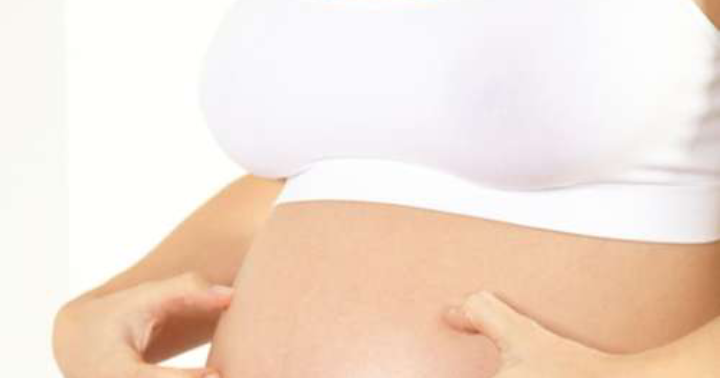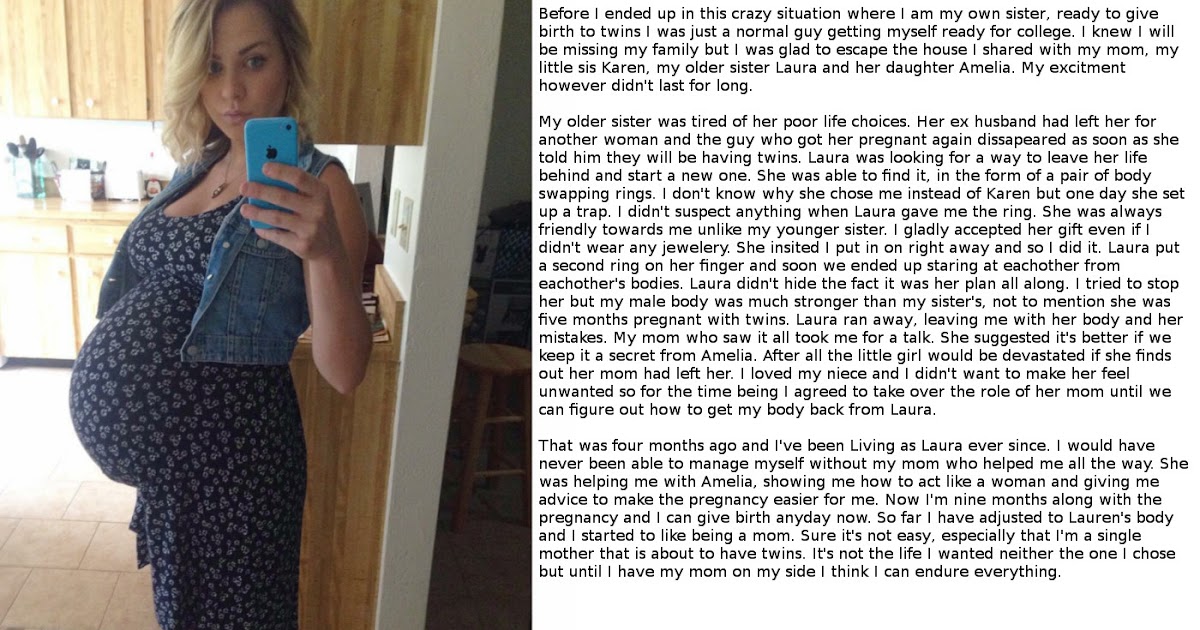When can other feel my baby kick
When Can You Feel Baby Kick From the Outside?
Feeling those first flutters of baby movement is a thrilling milestone for any mom-to-be. Sensing the growing life inside you lets you tune into your pregnancy in a totally new way—so it’s only natural to want to share that experience with your family and friends. But they’ll likely have to wait a while. So, when can other people feel baby kick? Keep reading to get answers from experts on when your partner or loved ones can feel and see baby kick from outside the pregnant belly.
In this article:
When can you feel baby kick from the outside?
How to help other people feel baby kick
When Can You Feel Baby Kick From the Outside?
Most women start feeling baby move sometime between 18 and 22 weeks, although some may feel it even earlier in their pregnancy, says Sara Twogood, MD, assistant professor of clinical obstetrics and gynecology at USC Keck School of Medicine in Los Angeles. In the beginning, those early kicks and rolls are often very subtle—in fact, they’re often indistinguishable from stomach gurgles and gas bubbles. “As the baby moves more frequently and women start registering fetal movement as distinct, they’ll often look back and say, ‘that was the baby moving, I just didn’t realize it at the time,’” Twogood says.
If baby’s early activity is tough for even the mom-to-be to pick up on, it’s likely the movements won’t be noticeable from outside the belly. That’ll change as your pregnancy progresses—but exactly when your loved ones and partner will feel baby kick can vary greatly from person to person (and pregnancy to pregnancy). For many, it’ll happen sometime between weeks 24 and 28, Twogood says, but that range can be as wide as 20 to 30 weeks. Generally, however, most loved ones can feel baby kick from the outside in the third trimester, adds Cynthia Flynn, MD, a Florida-based ob-gyn with JustAnswer.
Factors for when other people can feel baby move
Keep in mind that when it comes to seeing baby kick from outside, there are several factors that affect how well your partner and loved ones will be able to feel baby’s movement. These include:
These include:
-
Maternal weight. It may be harder for someone’s hand on the belly to detect a kicking baby if the mom-to-be is overweight or carries a little extra weight around their midsection, Twogood says, since the movement has to be stronger or more exaggerated to be felt on the outside.
-
Location of the placenta. If your placenta is located at the front of your uterus (known as an anterior placenta)—meaning it’s between baby and the wall of your belly—it can make it more difficult for others to feel baby’s kicks than if your placenta is tucked behind the uterus (called a posterior placenta), Twogood says.
-
Position of the baby. Sometimes it’s just a matter of waiting for baby to shift position for others to feel those kicks and jabs. If baby’s facing outward toward your belly, for example, it can be easier to notice those movements than if they’re facing inward toward your back, Flynn says.

What real moms say about feeling baby move from the outside
With such a wide range, it’s normal to wonder: When can others feel baby move? While it’s different for everyone, below, some Bump users and real moms offer their experience on when their loved ones felt baby’s movements:
-
“I would try and try to get my husband to feel the kicks and punches I was feeling for weeks, but every time he would put his hand on my belly the baby would stop. Finally at week 25 he felt a big one!” —Junebug9
-
“I think around 20 weeks my husband could really feel little jabs coming from my belly.” —Rosebride2006
-
“He finally felt her at 23 weeks, but he didn’t like to push on my belly and she didn’t always move when he was right there ready to feel. He really could feel her at 24 weeks.” —johnsoar
-
“Mine was 22 weeks. I didn’t realize what it was until I actually saw my tummy move, like somebody was poking me from the inside out.
 ” —wiglsworth36
” —wiglsworth36 -
“About 23 weeks, because I have an anterior placenta (so it can take a little longer).” —joecubed
-
“My husband couldn’t feel her until about 27 weeks, although I had been feeling movement since around 17 weeks.” —mrsain1105
-
“I think around 23 weeks. He could feel little taps on his hand.” —wendyj
-
“My husband felt the baby for the first time right after we got back from our 20 week ultrasound.” —brandie_larue
-
“I don’t know why, but my husband could feel it very early (and me too, when I put my hand on my stomach)—at exactly 16 weeks.” —kmgourley
How to Help Other People Feel Baby Kick
Wondering what you can do to help others feel those somersaults? There are a few ways to help other people feel baby kick from the outside—but most have to do with timing. Below, some expert tips on how to increase the chances of others feeling baby’s movements.
1. Pay attention to timing
Odds are your loved ones will best be able to feel baby’s kicks when they’re active. During the day, baby can be lulled to sleep by the movement of your daily routine, which is why when you settle in for the night, they often perk up. “Many babies move more in the evenings or at night, so this is when your partner should spend some time with their hand on your tummy,” says Mary Hirschi, CNM, a certified nurse midwife at Texas Children’s Pavilion for Women in Houston. You may already have a good idea of your little one’s activity through kick counts. Use this to time when your loved ones should try to feel baby’s kicks.
2. Help baby move in-utero
Even if you time it right, baby just might not be active when your loved ones try to feel them move. Luckily, you can try to encourage baby to kick. Flynn recommends lying on your left side rather than sitting. “This positions the uterus in a way that may make the baby more active and help others feel it more easily,” she says.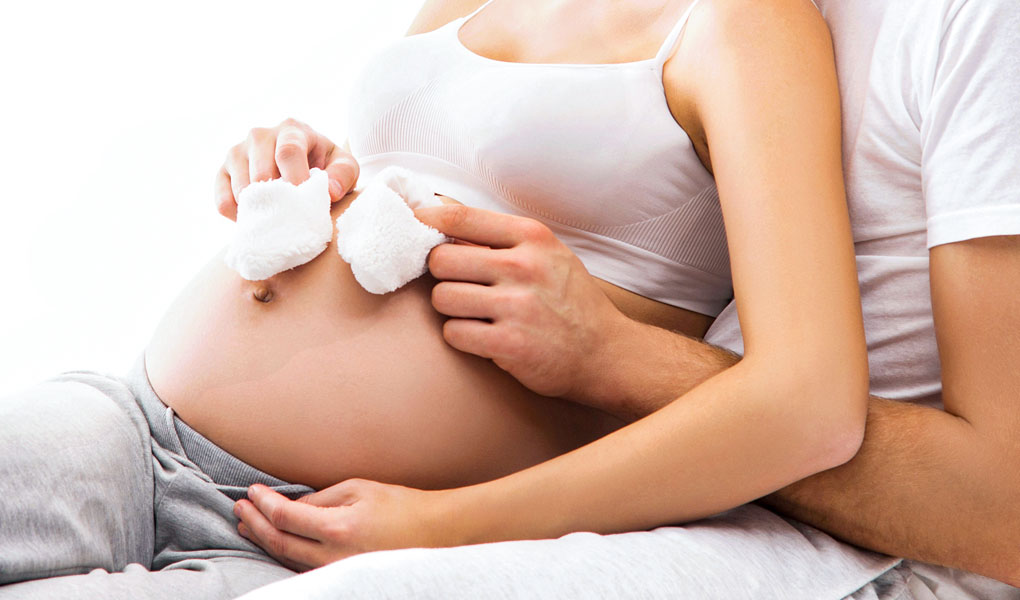 Hirschi also recommends drinking something cold or sweet, like juice or ice water, a light massage or listening to music to help wake baby up and trigger some kicks.
Hirschi also recommends drinking something cold or sweet, like juice or ice water, a light massage or listening to music to help wake baby up and trigger some kicks.
3. Apply some pressure
As you feel baby moving, guide the person’s hand to the right spot on your belly—and don’t be afraid to let them softly push down. “It’s safe to apply gentle pressure to the abdomen, which may help people feel the baby more,” Twogood says. “If there’s a question of how much pressure is safe, ask your doctor to demonstrate at your next appointment.”
4. Don’t Give Up
It may be frustrating to have baby stop kicking the moment a loved one tries to feel it, but don’t get discouraged. Getting it down right away is almost an art, and it requires a lot of patience. “Sooner or later, the movements will also become visible to others from the outside, and baby will provide you both with some entertaining moments,” Hirschi says.
About the experts:
Sara Twogood, MD, FACOG, is a board-certified ob-gyn in Los Angeles and co-founder of Female Health Education. She’s also the author of Ladypartsblog.com, which covers topics relating to fertility and pregnancy, and the founder of FemEd, a program designed to empower females through health education.
She’s also the author of Ladypartsblog.com, which covers topics relating to fertility and pregnancy, and the founder of FemEd, a program designed to empower females through health education.
Mary Hirschi, CNM, is a certified nurse midwife at Texas Children’s Pavilion for Women in Houston. She earned her medical degree from the University Of Southern California Keck School Of Medicine and has over 20 years of experience.
Cynthia Flynn, MD, is a board-certified ob-gyn based in Florida with over 20 years of experience. She is also an expert with the online platform JustAnswer. She received her degree from the Michigan State University College of Human Medicine.
Please note: The Bump and the materials and information it contains are not intended to, and do not constitute, medical or other health advice or diagnosis and should not be used as such. You should always consult with a qualified physician or health professional about your specific circumstances.
Plus, more from The Bump:
This Is How Hard Your Baby Is Kicking, According to Science
Fetal Hiccups: Why Do Babies Get Hiccups in the Womb?
What to Know About Fetal Development in the Third Trimester
When Can You Feel Baby Move? Early Kicks, from the Outside, More
Feeling your baby’s first kick can be one of the most exciting milestones of pregnancy. Sometimes all it takes is that little movement to make everything seem more real and bring you closer to your baby.
But while you expect your baby to move at some point in your pregnancy, you may have questions about what’s normal and what’s not (the ongoing concern you’ll probably have in all things parenthood).
Well, we’ve got answers. But first off: Remember that every pregnancy is different, so your baby might move earlier or later than a friend’s baby (or that baby you read about on a mommy blog).
But if you’re looking for a general guide, here’s what you need to know about fetal movement at different stages.
Whether it’s your first, second, or third pregnancy, you’re probably eager to feel that first move or kick. Did I just feel a wiggle? Or was that gas? And if you haven’t felt anything yet, you may wonder just when it’s going to happen. Kid’s gotta stretch their legs at some point, right?
But the truth is, your baby’s been moving from the very beginning — you just haven’t felt it.
First trimester movement: Weeks 1–12
Given the teeny tiny size of your baby during early pregnancy, it’s unlikely that you’ll feel any type of fetal movement in your first trimester.
If you have an ultrasound later in this trimester — say, around week 12 or so — the person doing the scan may point out that your baby is already rockin’ and rollin’ to the beat of their own drum.
But without an ultrasound — or if baby isn’t active during the scan, which is also quite normal — you’ll be none the wiser, because you likely won’t feel a thing.
While the first three months of pregnancy will come and go with little to no perceivable action in your womb, your baby will more than make up for the lack of movement in your second and third trimesters.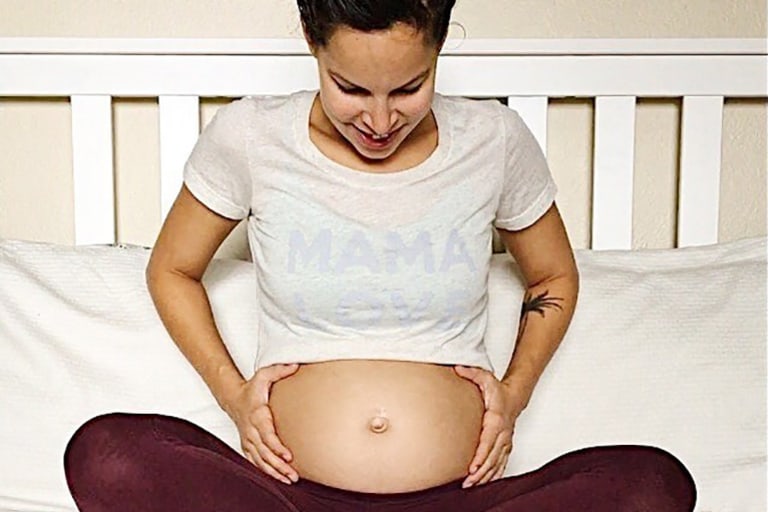
Second trimester movement: Weeks 13–26
This will be an exciting trimester! Morning sickness might start to fade (thank goodness!), you’ll have a growing baby bump, and those baby kicks will become a bit more prominent.
The first movements (known as quickening) start in the second trimester. At first, you might not even recognize what’s happening. Your baby is still small, so the kicks aren’t going to be strong. Instead, you may feel a strange sensation that you can only describe as a flutter.
Imagine a tiny fish swimming in your stomach (or a bit lower, really) — odd as it may sound, this is likely what those first movements will feel like. It can start as early as 14 weeks, but 18 weeks is more of the average.
If you’ve been pregnant before, and kind of know what to expect, you might detect movement sooner — maybe even as early as 13 weeks.
What’s interesting, though, is that while carrying twins or triplets means there’s less space in your womb, you’re not likely to feel movement any earlier when pregnant with multiples. (But you can expect a wild, acrobatic ride later in the pregnancy!)
(But you can expect a wild, acrobatic ride later in the pregnancy!)
Third trimester movement: Weeks 27–40
This brings us to the third trimester, also known as the home stretch. Things are getting a little cramped. And with less room to stretch, your baby’s kicks, nudges, and punches are unmistakable.
Your baby is also stronger in the third trimester, so don’t be surprised if some of those kicks hurt or cause you to flinch. (Your precious babe hurting you? Inconceivable!)
As baby takes up more space, you can also expect movement be less dramatic as you get closer to your delivery date, but it shouldn’t be less frequent or come to a halt.
The joy of feeling your baby move is heightened when you can share it with your partner, or friend, or family members.
You’re carrying the baby, so naturally you’re able to notice movement sooner than others. But in most cases, your partner should be able to detect movement a few weeks after you.
If your partner places their hand on your stomach, they may feel the baby move as early as week 20. As your baby becomes bigger and stronger, your partner (or others you allow) will not only feel kicks, but also see kicks.
As your baby becomes bigger and stronger, your partner (or others you allow) will not only feel kicks, but also see kicks.
Your baby may even begin to respond to familiar voices around week 25, so speaking to your baby could prompt a kick or two.
While some of those earlier movements may feel like a wave or a fish swimming in your belly, movement can also mimic feelings of gas or hunger pangs. So you may think that you’re hungry or having digestion problems.
It’s not until the feeling becomes consistent and stronger that you realize it’s actually your baby exploring the environment!
Sometimes, your baby moving can feel like little ticks in your belly. In all likelihood, your baby has begun hiccuping, which is completely harmless.
It’s also important to keep in mind that the frequency of movement will change at different stages of your pregnancy.
Just because your baby starts moving in the second trimester doesn’t mean that it’ll happen all day.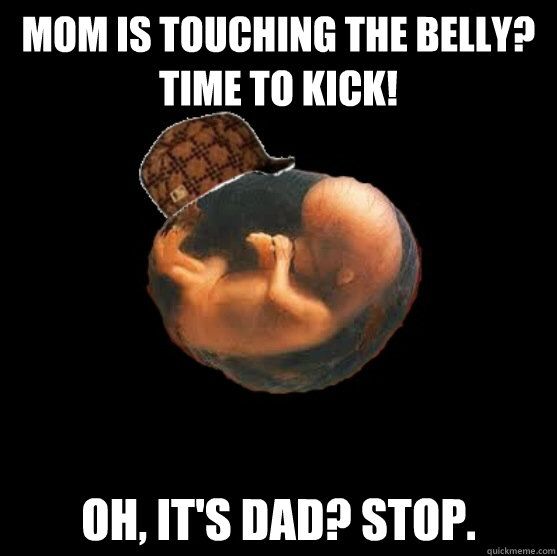 In fact, inconsistent movement is perfectly normal in this trimester. So even if you don’t feel any movement one day, don’t go into panic mode.
In fact, inconsistent movement is perfectly normal in this trimester. So even if you don’t feel any movement one day, don’t go into panic mode.
Remember, your baby is still tiny. It’s unlikely that you’ll feel every flip or roll. It’s not until your baby becomes bigger that you’ll start to feel something everyday. You might even begin to notice regular patterns of movement.
Your baby may be more active in the mornings, and calmer in the afternoons and evenings, or vice versa. It really depends on their sleep cycle.
Also, your own movements may lull the baby you’re carrying to sleep. This is also why you may notice more activity when you’re lying down — just as you’re trying to sleep, your soon-to-be newest addition wakes up.
Toward the end of your third trimester, it’s also perfectly normal for movements to change slightly. This doesn’t mean that anything is wrong — it just means that your baby is running out of space to move.
Want to play a game with your baby?
As you enter the third trimester, your doctor may likely suggest kick counting as a fun and simple way to track your baby’s health during these final months.
The ideal is to count how many times your baby moves within a specific timeframe to get a baseline of what’s normal for them.
You’ll want to count kicks at the same time every day, if possible, and when your baby is the most active.
Sit with your feet up or lie on your side. Note the time on the clock, and then start counting the number of kicks, nudges, and punches you feel. Keep counting up to 10, and then write down how long it took to feel 10 movements.
It’s important that you do this every day, because a change in movement could indicate a problem. If it normally takes 45 minutes to count 10 kicks, and then one day it takes two hours to count 10 kicks, call your doctor.
To be abundantly clear, lack of movement doesn’t always indicate a problem. It could just mean that your baby is enjoying a nice long nap, or your baby’s in a position that makes it harder to feel movement.
You might also feel less movement (or feel those first kicks a bit later in your pregnancy) if you have an anterior placenta. This is perfectly normal.
This is perfectly normal.
And sometimes — like all of us — your baby needs a little snack to get going again. So eating something or drinking a glass of orange juice might encourage movement. All the same, your doctor can bring you in for monitoring.
You’re not likely to feel your baby move during true labor (and you’ll have a lot distracting you), but you may feel movement during Braxton-Hicks contractions.
These contractions happen during the third trimester, and it’s essentially your body’s way of preparing for labor and delivery. This is a tightening of your abdomen that comes and goes over a period of time.
Not only can you detect movement during these contractions, but your baby’s movements can even trigger Braxton-Hicks. Going for a walk or changing your position can help relieve these early contractions.
Feeling your baby move is one of the amazing joys of pregnancy, often allowing for an intense bond. So it’s pretty natural to feel worried if you think you haven’t felt movement often or early enough.
But some babies move more than others, and some pregnant women feel kicks sooner than others. Try not to worry. You’ll soon get a feel for your baby’s normal.
Call your doctor if you’re concerned about lack of movement or if you don’t feel 10 movements within a two-hour window in the third trimester.
Also, don’t hesitate to call your doctor or go to the hospital if you’re worried about your baby’s health, or if you can’t distinguish between Braxton-Hicks contractions and actual labor contractions.
Your doctor and clinic staff are your allies in this journey. You should never feel foolish for calling or going in — the precious cargo you’re carrying is worth checking on in the event of anything usual.
Fetal movements during pregnancy
Fetal movements are expected by pregnant women and obstetrician-gynecologists. This is a very important sign that allows you to judge that the pregnancy is going well, and the child is developing successfully. Also, the baby communicates with the mother with the help of movements and can tell her about any inconvenience, so you need to listen to the movements of the fetus.
When fetal movements appear
- The first fetal movements appear at the seventh or eighth week of pregnancy. However, the small fetus does not come into contact with the walls of the uterus, so the mother does not feel its movements.
- Closer to the seventeenth week, the fetus begins to react to loud sound and light, from the eighteenth it begins to consciously move.
- A woman begins to feel movements during her first pregnancy from the twentieth week. In subsequent pregnancies, these sensations occur two to three weeks earlier. Also, a woman will feel the first movement of the fetus earlier if she is slim and leads an active lifestyle.
- From the twenty-eighth week, especially active movements are observed. The child "communicates" with the mother, reacts to her emotions. This continues until the thirty-second week, when the baby grows so much that it can no longer actively move in the uterus.
Fetal movement - as normal
Except for three to four hours a day when the baby sleeps, he is in constant motion. In the twentieth week, the fetus makes two hundred perturbations a day, from the twenty-eighth to the thirty-second, their number increases to six hundred. Then, the activity decreases again.
In the twentieth week, the fetus makes two hundred perturbations a day, from the twenty-eighth to the thirty-second, their number increases to six hundred. Then, the activity decreases again.
Fetal activity may vary depending on the following factors:
- Time of day . Usually the fetus moves more actively in the evening and at night.
- Mother's emotions . If a pregnant woman is under stress, then the child is frightened, may freeze and stop moving, or, conversely, react to adrenaline with active movements.
- Physical activity . During physical activity, the child is usually more calm than at rest. If the mother is in an uncomfortable position for a long time, the fetus may react with strong painful shocks.
- Pregnant diet . If the mother feels hungry, the child begins to move more actively. Also pushing and touching become stronger after eating.
 Especially if mom eats sweets.
Especially if mom eats sweets. - Environment a. The fetus reacts to loud sounds, sudden switching on of light. He may freeze in fear, or vice versa, begin to move more actively.
Why and how to count fetal movements
Changes in the motor activity of the fetus may be a sign of pregnancy pathology. Too strong, painful, or vice versa, weakened movements signal that the child does not have enough oxygen. This condition is called fetal hypoxia. In addition, sensations change when the amount of amniotic fluid changes. Therefore, it is important to count fetal movements, especially during the first pregnancy.
There are three methods for counting fetal movements:
- Pearson method . Movements are considered from nine in the morning to nine in the evening, during which physical activity is limited. In a special table, the time of every tenth movement is entered. Normally, the interval between them is less than an hour.

- Cardiff Method . Movements are counted for twelve hours. If during this period of time the child performed at least ten movements, the counting is stopped and starts again the very next day. If within twelve hours there were no ten movements, additional studies are needed.
- Sadowski Method . The movement of the fetus is considered at seven o'clock in the evening, after dinner, since eating increases the activity of the child. During the first hour, the child must make at least ten movements. If in the first two hours they were less, a doctor's consultation is necessary.
Our clinics in St. Petersburg
You can get detailed information and make an appointment by calling +7 (812) 640-55-25
Make an appointment
Fetal movements, what to look for
There is no strictly defined time when the mother begins to feel movements: especially sensitive women can notice them as early as 15 weeks, but more frequent cases are 18-20 weeks. Primiparous feel the movements, as a rule, a little later than those who give birth for the second or third time.
Primiparous feel the movements, as a rule, a little later than those who give birth for the second or third time.
If there is no movement at 22 weeks, you should see a doctor and have an ultrasound done to make sure your baby's cardiovascular system is functioning properly.
More often the movements are felt in the evening, before going to bed, in a calm state. At first, they will look like fluttering butterflies or stroking from the inside, and then the baby will work out the movements that he learns, and they will become more distinct. Actively working mothers, driving, busy with their thoughts, may not notice the first movements and start to worry: in this case, you need to have dinner, lie down on the bed and listen to yourself, without being distracted by something else - perhaps the baby is already moving, but Mom doesn't notice.
What determines fetal movement?
- closer to full-term, the child seems to be quieter to the mother, although he moves just as often: the fact is that he no longer moves his whole body, but only his limbs;
- if the mother does gymnastics, the child becomes quiet - this is normal;
- if the mother is in an uncomfortable position or a stuffy room, the child may either quiet down, or vice versa, begin to move actively and painfully - then you need to go out into the fresh air or change your position.
It will be useful to evaluate the nature of the movements, record how many movements the child makes within 2-3 hours, so that in case of significant changes, consult a doctor and make sure that this is a variant of the norm.
When will the baby start moving?
1
August 31, 2012 07:01 PM
How long does it take for stomach flutter to start? This is my first pregnancy, the period is still not long at all and I practically don’t feel anything, but I really want something to begin to be felt, to move inside. I read in the literature that the movements begin differently for everyone and for someone they can even be delayed, and someone feels them almost in the first months. It’s still quiet and peaceful in my stomach, sometimes it feels like the child is hiding and biding its time, so it became interesting how approximately the time should be expected to start stirring so as not to listen in vain every minute. And in general, what are they, what are they? Is it possible to confuse the usual rumbling in the stomach with the movements of the unborn child, in what week does he begin to move at all? Nine months is so long, I just want them to fly by, and it's time to give birth, so that the baby is finally born, you can press him, feel him near you, kiss, stroke him. In the meantime, you can stroke and care only for a gradually growing belly, but the husband is very pleased, he really likes the protruding tummy, although it is still very small and almost invisible, but he constantly strokes and takes care of it.
And in general, what are they, what are they? Is it possible to confuse the usual rumbling in the stomach with the movements of the unborn child, in what week does he begin to move at all? Nine months is so long, I just want them to fly by, and it's time to give birth, so that the baby is finally born, you can press him, feel him near you, kiss, stroke him. In the meantime, you can stroke and care only for a gradually growing belly, but the husband is very pleased, he really likes the protruding tummy, although it is still very small and almost invisible, but he constantly strokes and takes care of it.
2
September 1, 2012 08:51 PM
It all depends on the attachment of the fetus and on the figure of the mother. Skinny girls usually hear movements earlier, as far as I know, maybe after 15 weeks. And fuller mothers may not feel movement until 20-22 weeks.
3
September 2, 2012 10:42 PM
Everything is individual. Even with different pregnancies in different ways.
They ask their son in kindergarten: "What do your parents do?" - "Dad works, mom is beautiful !!!"
4
September 7, 2012 10:05 AM
I felt the first movement at about 15 weeks, but I am very thin. The doctor said that it seems to me) But then it only became clearer. so I understand that it was still a stir. And with the second pregnancy and at 14 weeks it was already clear.
But my friend only felt at 21 weeks, but she has extra pounds.
5
September 15, 2012 06:16 PM
It began to seem to me that the baby was moving half an hour after the gynecologist confirmed the pregnancy)) But seriously, somewhere around 15-16 weeks I began to feel, then I still doubted the truth, but soon the doubts disappeared)
6
September 20, 2012 11:01 AM
I felt at 16 weeks, as if there was some kind of tickling in my stomach. You can’t confuse these sensations with anything else, it feels like fish are swimming in your stomach
7
September 23, 2012 04:23 PM
And at first I did not understand that this child was pushing. Only weeks on the twentieth figured out that it was his tremors. The mood immediately lifted. Then they got stronger, in the ninth month it even hurt
Only weeks on the twentieth figured out that it was his tremors. The mood immediately lifted. Then they got stronger, in the ninth month it even hurt
8
October 8, 2012 06:51 PM
My moves are yet to come). And my little sister felt her niece stir at 13-14 weeks, at first no one even believed her, they thought her imagination was running wild :)
9
October 14, 2012 12:20 pm
I felt barely noticeable movements at 14 weeks, the doctor said it was too early, but my baby was somehow attached to the outer wall and I myself am thin. By 16 weeks, I already clearly felt every movement)
10
October 15, 2012 01:22 PM
I still don't move though it's only 11 weeks. But I really want to feel that inside someone alive is growing.
11
October 17, 2012 01:32 PM
Everything is individual. I didn't feel it early. Weeks at 17 it seems. And in the second pregnancy, they say, in general, they begin to feel the movements earlier.
12
October 17, 2012 07:17 PM
Not always in the second pregnancy before. On the contrary, I felt later, I even began to worry.
The most valuable cargo in the world is a baby in the belly!!
13
October 24, 2012 11:39 PM
I can't wait, but I don't know how it is? everyone describes differently and says I won’t miss it.
It's easier not to let us in than to kick us out later!
14
November 19, 2012 2:54 AM
Such a photo is cool.: D I started moving with the first at 16 weeks, and with the second, earlier, as they say. For some reason, everything happens with the second child earlier than with the first. There is happiness... I know him... I know the color of his eyes, his laugh... And it calls me mom!
15
November 30, 2012 10:24 AM
And I didn’t feel any movement during the whole pregnancy, there was polyhydramnios and the child very rarely, very smoothly changed position - and that’s all :).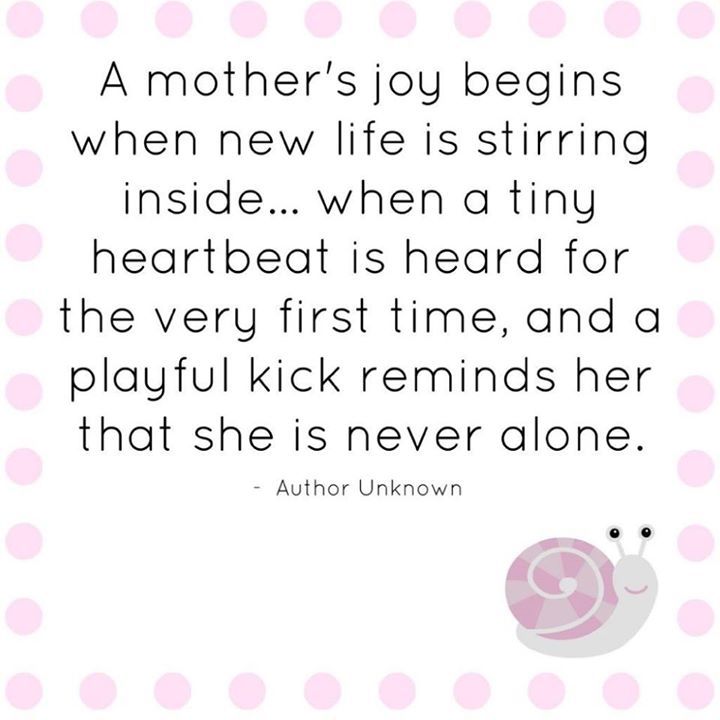 I was just waiting for any such movement as a sign that everything was in order. And I began to feel it at about 20 weeks, although I don’t bother with extra pounds.
I was just waiting for any such movement as a sign that everything was in order. And I began to feel it at about 20 weeks, although I don’t bother with extra pounds.
16
December 4, 2012 10:39 PM
I have a baby. My son started moving around 14-15 weeks. I'm thin myself, I quickly felt it. And I started to notice girls even earlier, very slight movements, but I already knew how it was)
17
December 6, 2012 11:21 AM
Somewhere around 18 weeks I began to notice some actions in my stomach, at first I didn’t even think that this was how the baby was moving, somehow not usually. And then yes, gave heat! The most interesting thing is that he calmed down when dad put his hands on his stomach :).
18
December 6, 2012 06:05 PM
Quote
I WANT A desperate couple to be told: "Congratulations - you will have a baby!" "To elderly parents:" We miss you - Let's go! Get dressed - Mom came for you!
At first, I didn’t even understand that it was a baby moving.


